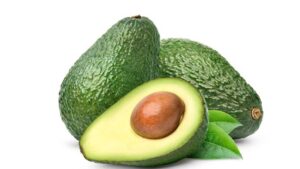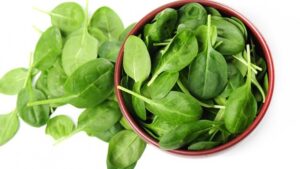Bell peppers, also known as sweet peppers or capsicums, are nutritious and versatile vegetables widely recognized for their vibrant colors, sweet flavor, and culinary adaptability. Incorporating bell peppers into your diet offers various health benefits due to their rich nutritional profile and low-calorie content.

Nutritional Value of Bell Peppers:
Bell peppers, available in various colors like red, yellow, orange, and green, are nutrient-dense vegetables packed with essential vitamins, minerals, and antioxidants. Here’s a breakdown of the nutritional value of bell peppers per 100 grams (approximately one medium-sized pepper):
Nutritional Content of Bell Peppers (Per 100 grams):
- Calories: Around 31 calories
- Carbohydrates: Approximately 6 grams
- Including dietary fiber of about 2.1 grams
- Protein: Roughly 1 gram
- Fat: Almost negligible (less than 1 gram)
Vitmins in bellpeppers
- Vitamin C: Bell peppers are exceptionally rich in vitamin C, providing up to 140-190 milligrams per 100 grams, contributing significantly to the daily recommended intake.
- Vitamin A: They contain beta-carotene, a precursor to vitamin A, contributing to eye health and providing around 7-12% of the daily recommended intake.
- Vitamin K1: Offering a small amount of vitamin K1, important for blood clotting and bone health.
Minerals in Bell Peppers:
- Potassium: A moderate source of potassium, providing about 175-210 milligrams per 100 grams, aiding in heart health and fluid balance.
- Folate (Vitamin B9): Present in smaller amounts, contributing to cell division and growth.
Antioxidants and Phytonutrients:
- Carotenoids: Bell peppers contain various carotenoids like beta-carotene, lutein, and zeaxanthin, acting as antioxidants and supporting eye health and immune function.
- Flavonoids: These compounds act as antioxidants, potentially reducing the risk of chronic diseases by combating oxidative stress.
Other Nutrients:
- Water Content: Bell peppers have a high water content, making them hydrating and contributing to a feeling of fullness.
- Fiber: A good source of dietary fiber, promoting digestive health and aiding in weight management.
Nutritional Variations by Color
The nutritional content of bell peppers can vary slightly based on their color. Here’s a breakdown of the nutritional variations by color:
Red Bell Peppers:

- Vitamin C: Generally contain the highest amount of vitamin C among bell peppers, offering approximately 140-190 milligrams per 100 grams.
- Beta-Carotene: Higher levels of beta-carotene compared to other colors due to their ripeness, contributing to their bright red color.
- Vitamin A: Richer in vitamin A precursor due to the higher beta-carotene content.
- Antioxidants: Abundance of antioxidants, including lycopene, giving them their red hue.
Green Bell Peppers:

- Vitamin C: Slightly lower vitamin C content compared to red peppers, ranging from about 80-100 milligrams per 100 grams.
- Beta-Carotene: Lower levels of beta-carotene compared to ripe red peppers, resulting in their green color.
- Vitamin A: Contain less vitamin A precursor than red peppers due to lower beta-carotene levels.
- Antioxidants: Still a good source of antioxidants, but generally not as high as in red peppers.
Yellow and Orange Bell Peppers:

- Vitamin C: Offer a moderate amount of vitamin C, falling between red and green peppers, providing around 120-160 milligrams per 100 grams.
- Beta-Carotene: Moderately high levels of beta-carotene, contributing to their yellow or orange color.
- Vitamin A: Contain a good amount of vitamin A precursor due to their beta-carotene content.
- Antioxidants: Rich in antioxidants, similar to red peppers but slightly lower in lycopene content.
B Including bell peppers in your diet offers numerous health benefits due to their rich nutritional profile. Here are the key benefits of incorporating bell peppers into your meals:
Rich Source of Vitamin C:
- Boosts Immune System: High levels of vitamin C support immune function, aiding in fighting off infections and promoting overall health.
- Collagen Production: Essential for collagen synthesis, supporting skin health and wound healing.
- Antioxidant Support:
- Neutralizes Free Radicals: Abundance of antioxidants like vitamin C, beta-carotene, and flavonoids helps combat free radicals, reducing oxidative stress and lowering the risk of chronic diseases.
- Eye Health: Antioxidants such as lutein and zeaxanthin contribute to eye health, reducing the risk of age-related macular degeneration.
- Heart Health Benefits:
- Potassium Content: Bell peppers contain potassium, aiding in regulating blood pressure and supporting cardiovascular health.
- Folate: Contributes to reducing homocysteine levels, potentially decreasing the risk of heart disease.
- Weight Management and Digestive Health:
- Low-Calorie, High-Fiber: Bell peppers are low in calories and high in dietary fiber, promoting satiety, aiding in weight management, and supporting digestive health.
- Gut Health: Fiber supports a healthy gut microbiome, reducing the risk of digestive issues.
- Anti-Inflammatory Properties:
- Reduced Inflammation: Antioxidants and phytonutrients in bell peppers possess anti-inflammatory properties, potentially reducing inflammation-related conditions.
- Eye and Skin Health:
- Vision Support: High levels of vitamin A and carotenoids like beta-carotene support eye health and vision.
- Skin Health: Vitamins A and C contribute to skin health, collagen production, and protection against skin damage.
- Hydration and Nutrient Content:
- High Water Content: Bell peppers are hydrating due to their high water content, aiding in hydration levels in the body.
- Nutrient-Dense: Despite their low calorie count, bell peppers are nutrient-dense, providing essential vitamins, minerals, and antioxidants.
Incorporating bell peppers into your diet offers a multitude of health benefits, including immune support, antioxidant protection, heart health, weight management, and promoting overall well-being. These colorful vegetables can be easily included in various dishes, adding flavor, texture, and a burst of nutrients to your meals.
Culinary Uses and Diet Incorporation:
Certainly! Including bell peppers in your diet is a flavorful and nutritious way to enhance your meals. Here are various culinary uses and ways to incorporate bell peppers into your diet:
- Fresh in Salads:
- Colorful Addition: Slice or dice bell peppers and add them to salads for a crunchy texture and vibrant color.
- Mixed Greens: Combine bell peppers with lettuce, tomatoes, cucumbers, and your favorite dressing for a refreshing salad.
- Roasted or Grilled:
- Side Dish: Roast or grill bell peppers and serve them as a side dish seasoned with olive oil, garlic, and herbs.
- Sandwiches and Wraps: Add roasted bell peppers to sandwiches, wraps, or paninis for added flavor and texture.
- Stuffed Bell Peppers:
- Main Course: Use bell peppers as edible bowls by stuffing them with a mixture of lean ground meat, quinoa, rice, beans, and spices for a nutritious main dish.
- Sauteed or Stir-Fried:
- Versatile Ingredient: Saute bell peppers with onions, mushrooms, and other vegetables for a colorful stir-fry.
- Pasta or Rice Dishes: Incorporate sauteed bell peppers into pasta sauces or rice dishes for added flavor and nutrients.
- Snack Option:
- Dip Pairing: Cut bell peppers into strips and enjoy them with hummus, guacamole, or other healthy dips as a nutritious snack.
- Soups and Sauces:
- Soup Enhancer: Add diced bell peppers to soups, stews, or sauces for a hint of sweetness and extra nutrients.
- Pizza Toppings: Use bell peppers as a colorful and nutritious topping for homemade pizzas.
- Fajitas and Tacos:
- Tex-Mex Delight: Slice bell peppers and onions and saute them for fajitas or tacos, adding a burst of flavor to your Mexican-inspired dishes.
- Grated or Julienned:
- Garnish or Ingredient: Grate or julienne bell peppers and use them as a garnish for dishes or incorporate them into coleslaw or salads.
- Appetizer Idea:
- Stuffed Appetizers: Make bite-sized appetizers by stuffing mini bell peppers with cheese, grains, or dips for a flavorful starter.
- Omelets and Breakfast Dishes:
- Egg Dishes: Add diced bell peppers to omelets, scrambled eggs, or frittatas for a nutritious and colorful breakfast option.
Incorporating bell peppers into your diet not only adds taste and texture to your meals but also provides essential vitamins, antioxidants, and fiber. Their versatility allows you to enjoy them in various dishes, from salads to main courses, enhancing both the flavor and nutritional value of your food.




